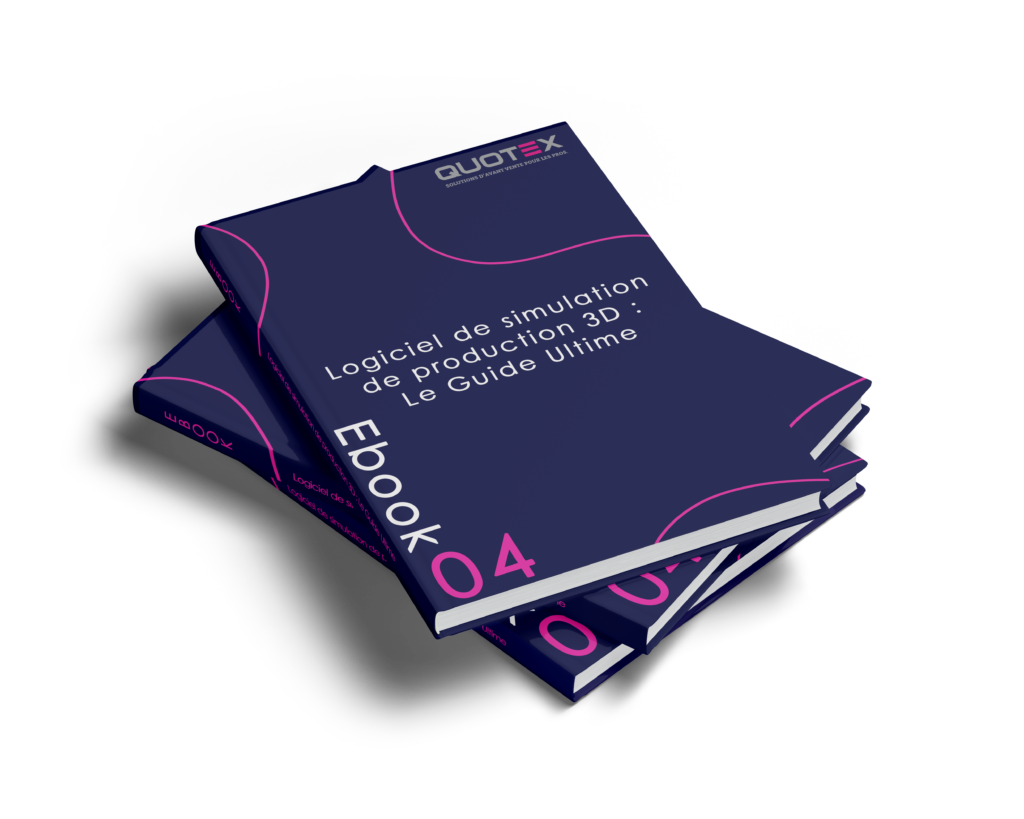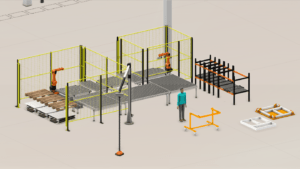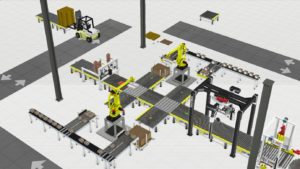L’industrie manufacturière évolue rapidement mais certaines croyances restent tenaces. La simulation 3D rapide et agile offre une vraie rupture pour améliorer la conception des processus industriels. A la clé : un gain de temps, moteur du changement.

Industrie manufacturière : de nombreuses possibilités d'amélioration
Les vieilles habitudes ont parfois la vie dure dans l’industrie manufacturière. Nous avons parlé à quelques entreprises qui font avancer l’industrie en introduisant de nouvelles façons de concevoir des usines et des lignes de production.
« Nous avons des clients qui font les choses d’une certaine manière depuis des décennies », déclare Edward House, PDG et président de In-House Solutions, un fournisseur de services logiciels de CAO/FAO, DNC, PCMM et de programmation robotique.
« Ils ont généralement, par exemple, des trajectoires de robot complexes et ils prennent pour acquis la tâche de génération manuelle de trajectoires fastidieuse« . Nous voyons une grande opportunité d’amélioration, mais souvent le client n’a même pas encore envisagé les options pour le travail manuel laborieux.
Delfoi, un fournisseur de services basés sur la simulation pour un certain nombre d’industries allant de la santé à l’aérospatiale, a des expériences similaires.
« Nous pouvons identifier immédiatement les tâches qui pourraient être automatisées »
Heikki Aalto, vice-président de Delfoi.
Le gain de temps est le principal moteur du changement
In-House Solutions et Delfoi soutiennent leurs projets ambitieux avec le même logiciel de simulation : Visual Components.
« Un bon exemple de ces résultats est le calibrage manuel et les processus d’enseignement dont nous disposons. L’intégration prenait environ 10 à 20 jours. Maintenant que nous avons des applications fonctionnelles sur la plateforme Visual Components, ce délai est passé à quatre jours en moyenne, ce qui est un résultat spectaculaire du point de vue de nos clients ! »

Edward House of In-House Solutions raconte une histoire similaire : « Nous comptons le temps que nous pouvons gagner, par exemple la génération de chemins, en jours ! Au pire, nous sommes en mesure de réduire de moitié les temps de génération de chemins et le plus souvent, le temps économisé atteint 80 à 90 %. »
Simulation 3D : Il faut le voir pour le croire
« Parfois, nos clients ont du mal à croire ce que nous proposons avec nos applications basées sur Visual Components », explique Edward House.
« Nous sommes prêts à faire des exemples d’applications pour montrer comment les solutions fonctionnent réellement. Heureusement, c’est un processus très rapide et facile avec cette technologie. »
La visualisation est la clé lorsqu’il s’agit de briser les croyances stagnantes. « Avec la simulation de Visual Components, nous pouvons montrer les avantages factuels des modifications apportées », déclare Edward House. « Une fois qu’ils les voient par eux-mêmes, les clients sont facilement convaincus. »
La faible sensibilisation et les outils traditionnels bloquent la croissance de la simulation 3D
Pourquoi plus d’entreprises n’exploitent-elles pas ces ressources ?
D’une part, la raison réside dans la technologie. « Dans notre domaine, de nombreuses entreprises utilisent des outils de visualisation et de programmation hors ligne. Cependant, aucun de ces outils n’est aussi sophistiqué ou aussi puissant que Visual Components », déclare Edward House.
« Aucun autre outil n’offre toutes les fonctions sur une seule plateforme et à un prix raisonnable. »
En revanche, la sensibilisation des clients à ces services est encore perfectible. « Le concept est solide, mais avec de nouveaux clients, nous devons repartir de zéro », explique Edward House. « Les clients n’ont aucune expérience préalable sur laquelle s’appuyer. »
Vous n’avez pas d’expérience en la matière mais vous pensez que cela pourrait aider votre entreprise à améliorer ses processus industriels? Contactez-nous pour en discuter et bénéficier d’une démonstration sans engagement de Visual Components.




